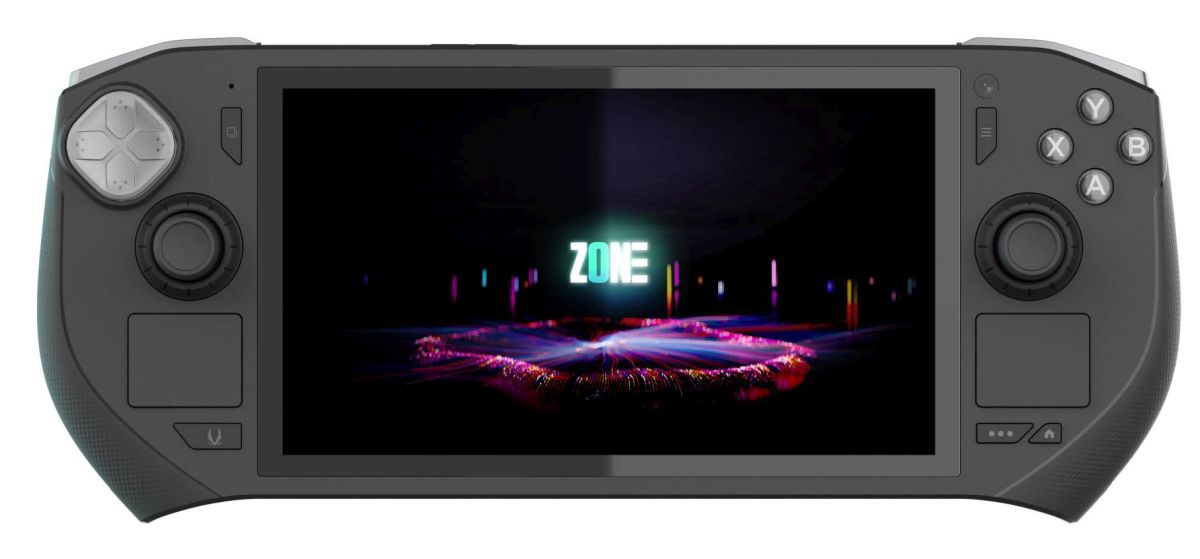Why are d-pads so easy for companies to fuck up.
Patents they have to dance around.
Patents only last 20 years, You can copy the SNES dpad…
Ah, good call.
Dual Pads - check
Ergo bumps on back of case - check
Not Intel - check
Symmetrical Sticks - check… but not like this - the center of gravity will still be out of whack and you’ll get sore wrists after a while. They need to be up top, like the WiiU Gamepad and SteamDeck. (somehow Nintendo got worse between WiiU > Switch, Switch is terrible for ergo all round)
Call me crazy but the Deck isn’t ergonomic at all for me and I get some very bad tingling in my right hand if I need to use the track pad.
Steamdeck isn’t a perfect example either, but it’s better than here.
For a sticks-only (+ touch on the screen) setup, WiiU Gamepad is still the golden standard, centre of gravity is just right, stick placement is natural for the holding position with the grips, even the dpad and face buttons are comfortable.
I’m not too familiar with the handheld PC space, but one thing that stuck out to me was the IR webcam. I wonder whether that will enable some neat things in the same vein as the Nintendo Switch’s IR sensor.
Nintendo special features are pushed by Nintendo into its software… PC developers aren’t going to invest into something maybe one customer in 10000 will use
Well, sure, but with this device there’s maybe the potential for indie developers to do something unique with that hardware I suppose?
Not really sure what the barriers to entry are for an indie dev to develop for the Switch. Maybe it’s not as difficult as I imagine it is. /shrug
Not a fan of whatever that D-pad is. I’m also curious about the battery life.
Thrilled to see twin touchpads though.
The more handheld PCs get made, the more I become aware of just how ahead of the curve Steam was with their deck design. I actually thought it looked gaudy as hell when it launched, but since using it, I can’t get over just how unexpectedly handy anything is. I just wish there were better haptics, since I’m kind of a sucker for that kind of stuff.
Can it Bazzite?
Asking the real questions.
Those Touchpads look awkwardly small, besides that though it sounds interesting. I wonder if it will be compatible with Steam OS since it seems like valve is pushing to support the competition with it
The Steam Deck was literally designed as a proof of concept to try and bootstrap the industry. This device is not competition, this device is exactly what Valve are hoping for, and obviously many others like it. Valve want to sell games and so therefore they want hardware manufacturers to create more devices that they can sell more games on. They also want to do it free of Microsoft’s tendrils and their control.
Who the fuck wants a 120hrz screen on a portable 🤣
Me.
I guess if you want to shit your battery life away while having to struggle to hit 60fps more power to ya 🤷♂️
Struggle? Did you see the specs?
I did. I doubt many games will push past 90 much less 120 without significant fidelity loss.
I suppose we’ll see it in testing. I imagine you think high refresh rate is only nice for games though? It’s certainly the main factor, but I enjoy high framerates for skimming text with smooth scrolling among other things.
Having the option for 120hz on the ROG Ally was a game changer. Especially combined with AMD Fluid Motion Frames 2 which just released and variable refresh rate on the screen. It’s hard to go back to anything without them now.
I honestly can’t imagine too many games that can be driven past 60fps with this hardware besides 2d stuff. I’m sure there are a few but I imagine it mostly just burns battery for most people.
Again, AMD Fluid Motion Frames 2. And when there are cases where your game cannot hit whatever threshold needed for 120fps, that’s where the variable refresh rate comes in.
You think fluid motion is just going to make games perform at 120 fps or near that? Especially without artifacting or fidelity? That’s highly optimistic.
Also I’m not sure why you keep on mentioning vrr, it has nothing to do with a 120 hrz screen wasting battery power chasing on paper metrics. Power is still allocated and not dynamic on this device.
Variable refresh rate is best on monitors that have high refresh rates because there’s a wider range of fps that it can adapt to. Even if you’re only at 80-100 fps, you’re benefiting from your refresh rate of your monitor being higher, particularly for frame times.
Also, I simply cannot imagine why you’re offended about refresh rate reaching 120hz. That’s purely a benefit. You can turn it down to save battery. There is literally zero downside.
Everything I’m running gets between 100-120+ fps with AFMF2 with far less artifacting than previous AFMF1. I’m mentioning VRR because it means that if a game doesn’t hit 120FPS, it stays perfectly smooth so frame dips are far less noticeable. I’m using an ROG Ally X, so I don’t spend much time worrying about battery power at all anymore unlike the previous ROG Ally. I get about 2-3 hours playing the bigger games on it and for anything that I want to basically play forever (2d stuff), I can set screen to 720p, lock screen to 60fps (or less) and lock TDP to 7 watts and get 10 or so hours out of it.
If you aren’t interested in trying the driver with AFMF2 (which is not yet officially released for the handheld Windows devices yet but can be sideloaded), you can also play with Lossless Scaling on Steam which can also do frame generation up to 4x.
Being honest, and I know this isn’t a laptop or some productivity device, but I personally very much dislike using any screen under 100Hz now, even for just simple desktop use. I think I get your point, that it would have made more practical sense to use a more economical display.
I just know I personally wouldn’t spring for something like this if it only had a 60Hz display, though.








